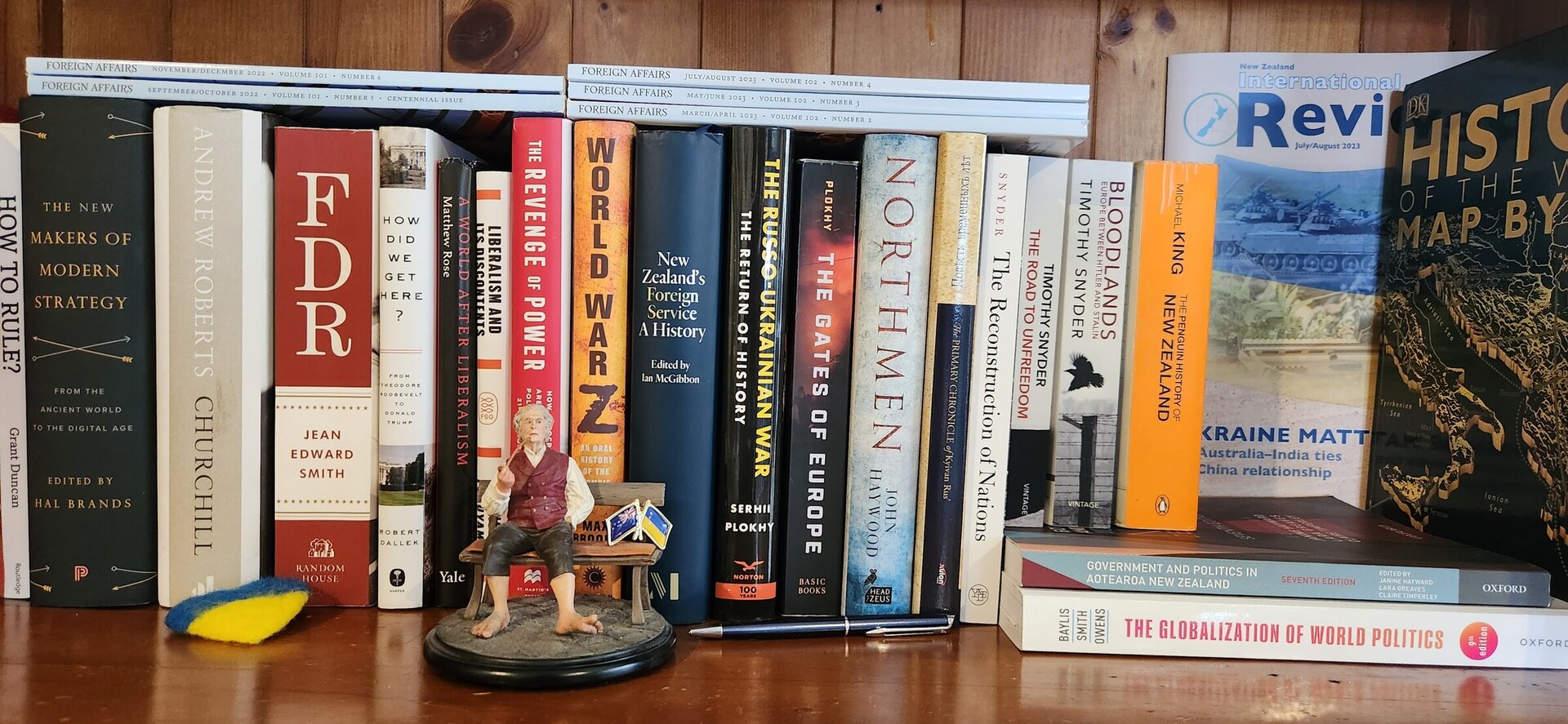The full article titled "Reclaiming Truth: Reflexive control and Russian disinformation" was published in the Spring 2024 (Issue#33) issue of the Line of Defence Magazine (pages 26-29).
LoD Editor: "[...] an extended article exploring the Soviet concept of reflexive control. It’s a concept that provides insights into Russian approaches to psychological warfare, and – importantly – for everyone else it can inform strategies to fight against misinformation."
Extracts from the article:
"Russia leads the way in strategic nihilism, which Yale University professor Timothy Snyder describes as a deliberate strategy of seeding chaos and confusion within societies through a notion that objective truth does not exist and that all political systems are corrupt and mendacious."
[...]
"Reflexive control is a psychological concept that when applied to politics refers to the manipulating of perceptions and opinions of target societies and consequently influencing their governments’ decision-making processes."
[...]
"The security challenge of disinformation, particularly that which has been comprehensively planned and executed by the Russian state as part of their global hybrid warfare, constitutes a significant threat to societies as far away as New Zealand through undermining trust in national and international institutions and manipulating public opinion, which can influence political decision-making.
Understanding the Russian concept of reflexive control can help us to comprehend how disinformation campaigns can be designed and executed, and to develop effective strategies to counter informational invasion and preserve the integrity and cohesion of our societies."
[...]
Image: generated with AI
References
Ajir, M., & Vailliant, B. (2018). Russian information warfare: Implications for deterrence theory. Strategic Studies Quarterly, 12(3), 70-89. https://www.jstor.org/stable/26481910
Amlot, C. E., Sablonniere, R. de la, Terry, D. J., & Smith, J. R. (2007). Integration of social identities in the self: Toward a cognitive-developmental model. Personality and Social Psychology Review, 11(4), 364-388. https://doi.org/10.1177/1088868307304091
Associated Press. (2024, March 1). Russian disinformation is about immigration. The real aim is to undercut Ukraine aid. US News and World Report. https://www.usnews.com/news/politics/articles/2024-03-01/russian-disinformation-is-about-immigration-the-real-aim-is-to-undercut-ukraine-aid
Chotikul, D. (1986). The Soviet theory of reflexive control in historical and psychocultural perspective: A preliminary study [Report]. The Naval Postgraduate School. https://nsarchive.gwu.edu/document/15364-diane-chotikul-soviet-theory-reflexive
Ellick, A. B., Westbrook A., & Kessel, J. M. (Authors). (2018, November 12). Meet the KGB spies who invented fake news (Episode 1). In Operation Infektion: A three-part video series on Russian disinformation [Documentaries]. The New York Times. https://www.nytimes.com/video/opinion/100000006210828/russia-disinformation-fake-news.html?smid=url-share
Finley, A. (2024). Russia is buying politicians in Europe. Is it happening here too? The New Republic. https://newrepublic.com/article/180630/russia-corruption-network-europe-buying-politicians-america
Gustafson, K., Lomas, D., & Wagner, S. (2024). Intelligence warning in the Ukraine war, Autumn 2021 – Summer 2022. Intelligence and National Security. https://doi.org/10.1080/02684527.2024.2322214
Hodgetts, D., Hopner, V., Carr, S., Bar-Tal, D., Liu, J., Saner, R., Yiu, L., Horgan, J., Searle, R., Massola, G., Hakim, M. A., Marai, L., King, P., & Moghaddam, F. (2022). Human security psychology: A linking construct for an eclectic discipline. Review of General Psychology. https://doi.org/10.1177/10892680221109124
Jaitner, M., & Kantola, H. (2016). Applying principles of reflexive control in information and cyber operations. Journal of Information Warfare, 15(4), 27-38. https://www.jstor.org/stable/26487549
Kutcher, K. C. (2023). Quasi-internal armed conflicts as a tool of geopolitics: Russia’s armed forces in Moldova, Chechnya, and Syria. Line of Defence, 30, 34-39. https://defsec.net.nz/2023/12/24/line-of-defence-magazine-summer-2023-24/
Lowenthal, M. M. (2020). Intelligence: From secrets to policy (8th ed.). CQ Press
Lucas, E. (2019). The spycraft revolution: The future of espionage. Foreign Policy. https://foreignpolicy.com/2019/04/27/the-spycraft-revolution-the-future-of-espionage/
Microsoft. (2022). Defending Ukraine: Early lessons from the cyber war. Microsoft Corporation. https://query.prod.cms.rt.microsoft.com/cms/api/am/binary/RE50KOK
Miller, C. (2023). The war came to us: Life and death in Ukraine. Bloomsbury.
Naím, M. (2022). The revenge of power: How autocrats are reinventing politics for the 21st century. St. Martin’s Press.
National Intelligence Council. (2021). Global trends 2040: A more contested world (NIC Publication No. 2021-02339). National Intelligence Council. https://www.dni.gov/index.php/global-trends-home
Payne, M. (2022, March 22). Further sanctions on Russia [Statement]. Australian Minister for Foreign Affairs. https://www.foreignminister.gov.au/minister/marise-payne/media-release/further-sanctions-russia
Scott, B. (2023, December 14). Australia needs and open-source intelligence agency: Done right, this reform could also disrupt the culture of excessive secrecy. The Interpreter. https://www.lowyinstitute.org/the-interpreter/australia-needs-open-source-intelligence-agency
Scull, N. C., Mbonyingaboo, C. D., & Kotb, M. (2016). Transforming ordinary people into killers: A psychosocial examination of Hutu participation in the Tutsi genocide. Peace and Conflict: Journal of Peace Psychology, 22(4), 334-344. https://doi.org/10.1037/pac0000158
Snyder, T. (2019). The road to unfreedom: Russia, Europe, America. Vintage Arrow.
Varzhanskyi, I. (2024). Reflexive control as a risk factor for using OSINT: Insights from the Russia–Ukraine conflict. International Journal of Intelligence and CounterIntelligence, 37(2), 419-449. https://doi.org/10.1080/08850607.2023.2228489
Weiten, W. (2021). Psychology: Themes and variations (8th ed.). Wadsworth.


